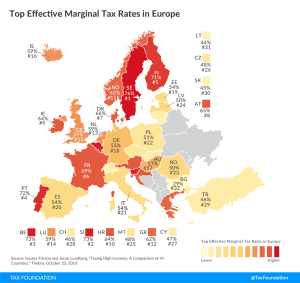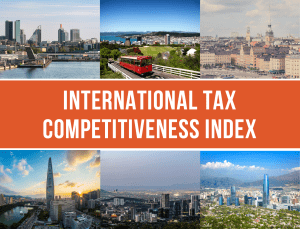
All Related Articles



2020 State Business Tax Climate Index
Connecticut, California, New York, and New Jersey rank lowest in our 2020 State Business Tax Climate Index, which compares states on more than 120 tax policy variables to show how well they structure their tax systems and to provide a road map for improvement.
20 min read
Improving the Federal Tax System for Gig Economy Participants
Advances in technology have enabled workers to connect with customers via online platform applications for work ranging from ridesharing to home repair services. The rise of gig economy work has reduced barriers to self-employment, bringing tax challenges like tax complexity and taxpayer noncompliance.
32 min read

The Home Mortgage Interest Deduction
20 min read
International Tax Competitiveness Index 2019
Our International Index compares OECD countries on over 40 variables that measure how well each country’s tax system promotes sustainable economic growth and investment.
11 min read
States Should Continue to Reform Taxes on Tangible Personal Property
Tangible personal property taxes increase the complexity of state and local tax codes, discriminate against taxpayers based on their capital structure, and change economic behavior by incentivizing taxpayers to modify their property ownership to avoid the tax.
32 min readLocal Income Taxes in 2019
13 min read